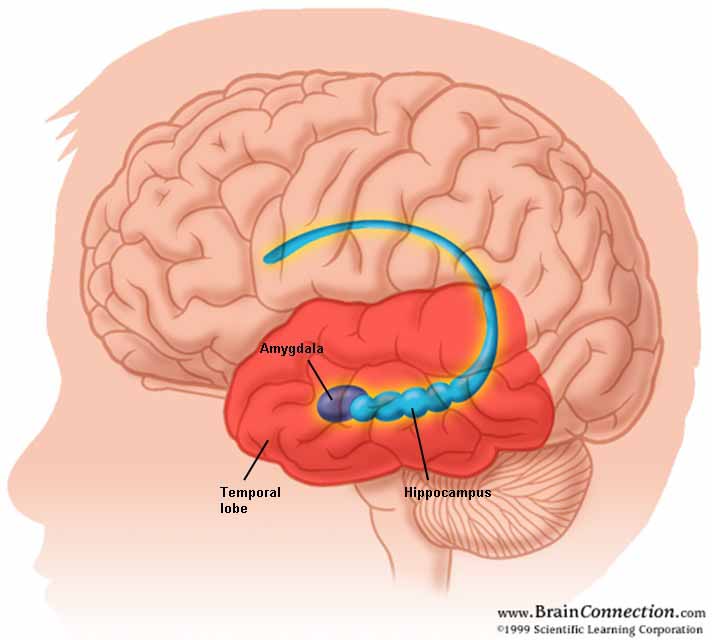Preschool nurturing boosts child's brain growth
Mothers' loving support is linked to robust growth of brain area involved in learning, memory, and response to stress.
Children with mothers who nurture them during their preschool years, as opposed to later in childhood, produce more robust growth in their hippocampus. The hippocampus is associated with learning, memory and response to stress. Children with less supportive moms did not show the same increase in hippocampal size. This is according to research from the Washington University School of Medicine in St. Louis, Missouri, USA.

"This study suggests there is a sensitive period when the brain responds more to maternal support."
Joan L. Luby MD, Child Psychiatrist, the The Samuel and Mae S. Ludwig Chair in Psychiatry, St. Louis Children's Hospital, Washington University School of Medicine, St. Louis, Missouri, USA.
The study was published online April 25 in the Proceedings of the National Academy of Sciences Early Edition.
The researchers studied a series of brain scans of children from preschool through early adolescence, finding a sharp rise in the volume of the hippocampus in kids whose mothers supported and nurtured them during the preschool years. That region of the brain is critical to learning, memory and regulating emotions. In contrast, the hippocampus appeared smaller in adolescents whose mothers were less supportive during the preschool period, even if mothers became more supportive in elementary or middle school.
The new research builds on previous findings by the same investigators. That research showed a link between maternal nurturing and a larger hippocampus as seen in brain scans taken when the children reached school age. In the new study, researchers were able to observe changes in the hippocampus across multiple brain scans taken at three different time periods. One hundred twenty seven children received three MRI scans each, from the time they first started school through early adolescence.
"The parent-child relationship during the preschool period is vital, even more important than when the child gets older.
"We think that's due to greater plasticity in the brain when kids are younger, meaning the brain is affected more by experiences very early in life.
"This suggests it's vital kids receive support and nurturing during their early years."
Joan L. Luby MD
The researchers also found that hippocampal growth trajectory was associated with healthier emotional functioning even as children entered their teens. When parental nurturing didn't begin until late childhood, researchers noted such support didn't provide the same brain growth.
"This finding highlights the critical importance of caregiving in sculpting aspects of brain development important to how children function as they mature."
Deanna M. Barch, PhD, Psychologist, Washington University School of Medicine, Department Chair, Psychological & Brain Sciences, and co-author.
Researchers measured mothers' ability to nurture by closely observing and scoring videotaped interactions between mothers and their children.
Investigators observed mothers and children under moderately stressful conditions, explained Dr. Luby: "The mother is asked to complete a task while we give the child an attractive gift to open, but we don't allow the gift to be opened right away.
"This presents the child with a stressful condition — like those that happen multiple times each day in any given family, such as when you're cooking dinner and a child wants attention. The child needs something, but you have something else to do, so it challenges your parenting skills."
Parents who are able to maintain their composure and complete assigned tasks while still offering emotional support to their children are rated as more nurturing and supportive. Parents who dismiss their children, or behave in punitive ways during the test, receive lower marks for support.
Small changes in support netted big differences in outcome. Mothers more supportive than average, had children whose brain scans showed increases in hippocampus size more than two times greater than children whose mothers evaluated as slightly below average in nurturing.
Luby believes the findings suggest it may be possible to help children do better in school, cope better in life and develop stronger emotionally by helping parents learn to provide more support and nurturing early in the lives of their children.
"We now know how early maternal support affects a child's brain development. We also know providing support to parents can have a positive impact on the behavioral and adaptive outcomes in their children. So we have a very logical reason to encourage policies to help parents become more supportive."
Joan L. Luby MD
Significance
Data from a longitudinal neuroimaging study beginning in the preschool period and including three brain scans through school age and early adolescence were used to investigate the effects of maternal support on the development of the hippocampus. Consistent with animal findings showing that early support enhances hippocampal development and later adaptive coping, findings demonstrated that early childhood maternal support predicted a steeper hippocampal growth trajectory. The data also suggested that early childhood was a sensitive period when the effects of support had a more powerful effect on hippocampal growth. The hippocampal growth trajectory was associated with better emotion regulation in early adolescence. Findings suggest that enhancing early childhood maternal support fosters healthy childhood brain development and emotion functioning.
Abstract
Building on well-established animal data demonstrating the effects of early maternal support on hippocampal development and adaptive coping, a few longitudinal studies suggest that early caregiver support also impacts human hippocampal development. How caregiving contributes to human hippocampal developmental trajectories, whether there are sensitive periods for these effects, as well as whether related variation in hippocampal development predicts later childhood emotion functioning are of major public health importance. The current study investigated these questions in a longitudinal study of preschoolers assessed annually for behavioral and emotional development, including observed caregiver support. One hundred and twenty-seven children participated in three waves of magnetic resonance brain imaging through school age and early adolescence. Multilevel modeling of the effects of preschool and school-age maternal support on hippocampal volumes across the three waves was conducted. Hippocampal volume increased faster for those with higher levels of preschool maternal support. Subjects with support 1 SD above the mean had a 2.06 times greater increase in total hippocampus volume across the three scans than those with 1 SD below the mean (2.70% vs. 1.31%). No effect of school-age support was found. Individual slopes of hippocampus volume were significantly associated with emotion regulation at scan 3. The findings demonstrate a significant effect of early childhood maternal support on hippocampal volume growth across school age and early adolescence and suggest an early childhood sensitive period for these effects. They also show that this growth trajectory is associated with later emotion functioning.
Luby JL, Belden A, Harms MP, Tillman R, Barch DM. Preschool is a sensitive period for the influence of maternal support on the trajectory of hippocampal development. PNAS Early Edition, April 25, 2016. http://www.pnas.org/cgi/doi/10.1073/pnas.1601443113
Author contributions: J.L.L., A.B., and D.M.B. designed research; J.L.L., A.B., and D.M.B. performed research; M.P.H. and R.T. contributed new reagents/analytic tools; M.P.H and R.T. analyzed data; and J.L.L., A.B., and D.M.B. wrote the paper.
The authors declare no conflict of interest.
This article is a PNAS Direct Submission. R.T.K. is a guest editor invited by the Editorial Board.
This article contains supporting information online at www.pnas.org/lookup/suppl/doi:10.1073/pnas.1601443113/-/DCSupplemental.
Freely available online through the PNAS open access option.
This work was supported by the National Institute of Mental Health and the National Institutes of Health Blueprint of the National Institutes of Health (NIH), grant number R01 MH090786.
Washington University School of Medicine's 2,100 employed and volunteer faculty physicians also are the medical staff of Barnes-Jewish and St. Louis Children's hospitals. The School of Medicine is one of the leading medical research, teaching and patient-care institutions in the nation, currently ranked sixth in the nation by U.S. News & World Report. Through its affiliations with Barnes-Jewish and St. Louis Children's hospitals, the School of Medicine is linked to BJC HealthCare.
Return to top of page
|




